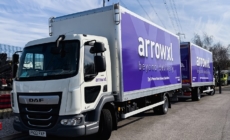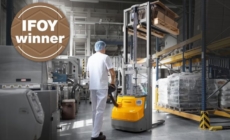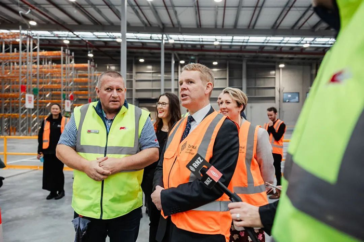-
ROSSLARE EUROPORT TARGETS HEALTH & SAFETY WITH CAMERA TELEMATICS PARTNERSHIP - 2 days ago
-
Landmark Study Reveals Wearable Robotics Significantly Boost Safety and Efficiency in Industrial Environments - July 24, 2024
-
Visku Tackle The Retail Seasonality Challenge One Pallet At A Time - July 22, 2024
-
KAMMAC AND BERGEN LOGISTICS STRENGTHEN FASHION & LIFESTYLE SERVICES IN THE UK - July 19, 2024
-
TENTBOX EXTENDS PARTNERSHIP WITH ARROWXL TO SUPPORT INCREASING DEMAND - July 17, 2024
-
The Perfume Shop improves customer journeys while driving profitability in partnership with Scurri - July 17, 2024
-
ZEROMISSION SECURES £2.3M ($3M) INVESTMENT TO ACCELERATE ELECTRIC FLEETS - July 16, 2024
-
BCMPA CELEBRATES SUCCESS OF 2024 CONFERENCE - July 15, 2024
-
Best of the Best: Jungheinrich Celebrates Triple International Award Win - July 12, 2024
-
GOPLASTICPALLETS.COM CALLS ON NEW CHANCELLOR RACHEL REEVES TO CONSIDER PLASTIC PACKAGING TAX REFORM - July 10, 2024
Currently on the campaign trail in the run-up to the forthcoming general election in New Zealand, the country’s Prime Minister, Chris Hipkins, got a close-up view of LiBiao Robotics’ automated parcel sorting technology when he was guest of honour at a recent event held to mark the opening of leading homeware retailer Kmart’s new distribution hub.
The 40,0000 square metre site will service the long-term needs of Kmart’s stores and online customers across the North Island of New Zealand. The new distribution centre will supply 26 Kmart stores and fulfil website orders for affordable homeware, furniture, electronics, toys and children’s clothing direct to internet shoppers.
This is not the first installation that LiBiao Robotics has undertaken on behalf of Kmart in New Zealand. In May 2021 a high throughput LiBiao Robotics automated mobile robot solution went live at another Kmart distribution and fulfilment centre facility in Christchurch.
Sustainability is built into the new site – not only in the construction materials used but also the site’s operational processes – and the environmental benefits offered by the LiBiao Robotics sortation robots was a big influence on the company’s decision to opt for a robotic solution.
With a typical LiBiao Robotics robot using just 30 watts of power an hour – approximately the same as a small indoor table lamp – the system is notably more energy efficient than a conveyor-based sortation solution.
Robotic sortation systems also deliver human resources-related benefits – particularly in developed countries with a low population density. For example, with approximately 20 people per square kilometre, labour costs can be high in New Zealand. But thanks to the fact that robotic sortation solutions require very little human interaction, the wage bill is kept to a minimum.
In addition, with a robotic system it is not necessary to recruit extra personnel when the time comes to expand a site’s sorting capacity – it is simply a matter of introducing additional robots as required. With the price of a LiBiao Robotics robot being equivalent to a single warehouse worker’s monthly pay in some countries, the potential for cost savings is obvious.

































